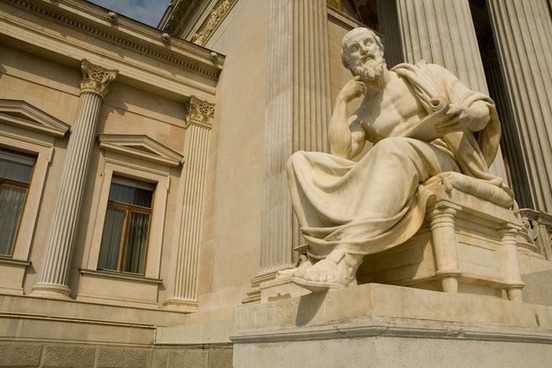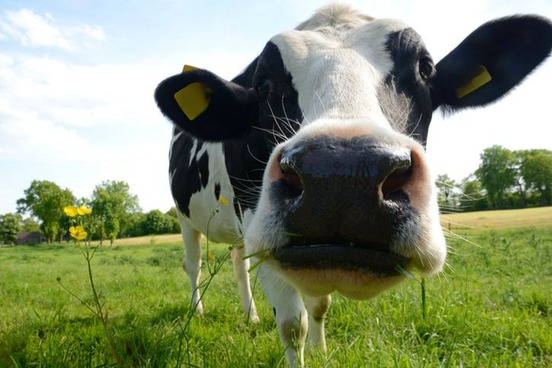To muse is to ponder or to think, and since the Muses are the source of inspiration for poetry, art, comedy, music, and dance in ancient Greek religion and myth, it might make sense to think of them also as the inspiration for deep thoughts. Except that they aren’t.
The muse that is the noun meaning “a source of inspiration” or, when capitalized, one of the nine Muses, indeed comes from the Greek name for them, which passed through Latin and French to English.
But the muse that is the verb meaning “to become absorbed in thought” comes from a different source: the Middle French word muse, meaning “the mouth of an animal” or “snout.” It’s assumed that the facial expression when one is thinking is what connects this word to absorption and reflection, and that the French verb had come to mean “to gape, to stare, to idle, to muse” because of the face one makes when lost in thought.
Though it may not share etymological roots with the Muses, the verb muse does have a relative in English that connects in a more literal way with their shared past: muzzle.






















